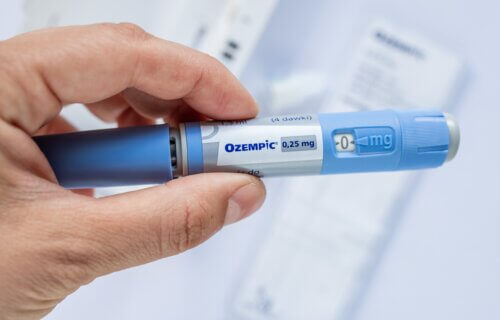CHAPEL HILL, N.C. — Higher doses of semaglutide, the antidiabetic drug commonly known as Ozempic and Wegovy, does a better job at controlling blood sugar and weight loss. The findings come from a recent phase 3B clinical trial which revealed substantial health improvements when patients took daily oral doses of semaglutide at 25 mg and 50 mg rather than the standard 14 mg dose.
Despite its original purpose as a diabetes medication, semaglutide has become increasingly popular recently among people using it to lose weight. The observed weight loss among patients led many people to try the drug off-label, sparking global supply chain problems.
The FDA approved semaglutide injections for weight loss in both adults and children 12 years and older with obesity who have trouble keeping the weight off despite diet and exercise. The current findings show semaglutide’s impact on weight loss is even greater at higher doses. Researchers explain that semaglutide is considered a glucagon-like peptide (GLP-1) receptor agonist, which means it suppresses appetite.
“Low doses of GLP-1 receptor agonists are really powerful for reducing A1C, or the average glucose in the blood,” says John Buse, a professor of medicine at UNC School of Medicine and co-director of the North Carolina Translational and Clinical Sciences Institute, in a media release. “Whereas, the higher doses that are really good for weight reduction. On average, patients lost eight kilograms (17.5 lbs) at 50 milligrams, which is nearly twice as much weight loss that we saw with the lowest dose.”

Taking more of the drug can cause side-effects
There were 1,606 people who participated in the clinical trial. Each person was randomly assigned into three groups and instructed to take oral semaglutide once a day. Each group took one of three semaglutide dosages — a 14 mg dosage, a 25 mg dosage, or a 50 mg dosage — for one year.
The research team measured people’s blood sugar levels through a percentage called A1C. According to the American Diabetes Association, most adults with diabetes are considered healthy if they have an A1C that’s less than seven percent. All participants in the trial showed A1C levels between 8.0 and 10.5 percent.
People who took the higher 25 mg and 50 mg doses of oral semaglutide were more likely to have less than seven percent of A1C than those taking the standard-issue 14 mg.
Semaglutide also led to weight loss in all participants. However, the weight loss effects were more apparent in people taking 50 mg of oral semaglutide. This group lost an average of 17.5 pounds. In contrast, people who took 25 mg and 14 mg lost 14.8 pounds and 10 pounds, respectively.
The most common side-effect was nausea, which likely stems from the drug making your stomach feel full. Some people taking the two higher doses also reported vomiting, diarrhea, or constipation.
The study is published in The Lancet.
You might also be interested in:
- Ozempic warning: Beware of buying weight-loss drug semaglutide online
- From Ozempic to Wegovy, here’s what you should know about ‘anti-obesity’ drugs
- Obesity drug semaglutide helps over 70% of obese teens lose weight

